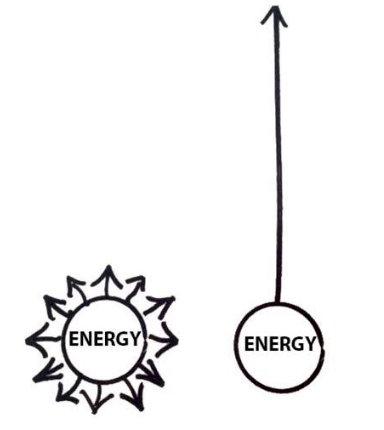I came across this image this morning in an email. It's from the book Essentialism. I haven't read the book but it's been on my list for a while now. I'm going to be honest, I'm only sharing it because it makes something I do with clients look really good. And if you think I'm above self promotion, you are sorely mistaken my friend. Anyway, here's the image:

The little energy circle on the left shows what happens when you put your energy into a bunch of stuff at once. You don't get a lot of anything done. Whereas, with the energy circle on the right, if you're focused on one thing you can get a lot accomplished.
This is what I try to get my clients to do (this is the patting myself on the back portion). Every Sunday I email my active clients and ask "what's the one thing (non-gym related) you're going to do this week to get closer to your health & fitness goals?" This hard for people.
To be clear, it's hard to pick only one thing. Believe it or not people can usually come up with two or three things. I can see why people make this mistake, I mean more is better right? No.
When you're trying to make a change it's really enticing to try to attack from all angles. Look the picture above again. If you try to do too much, you'll end up not getting much of anything done. You'll also end up frustrated. You get frustrated because you feel like you're doing so much but you're not making any real progress.
On the other hand, when you focus your efforts on one thing you can see the progress that you're making (or not making). If you're only doing one thing and you're not making progress then you know exactly what you need to adjust.
Then once you're making progress it begets more progress. Also progress is very rarely linear. What I mean is, if you're making progress on one thing then it's probably spilling over to other areas. So by focusing on just one thing you could be improving more things than if you're focusing on a bunch of things.


